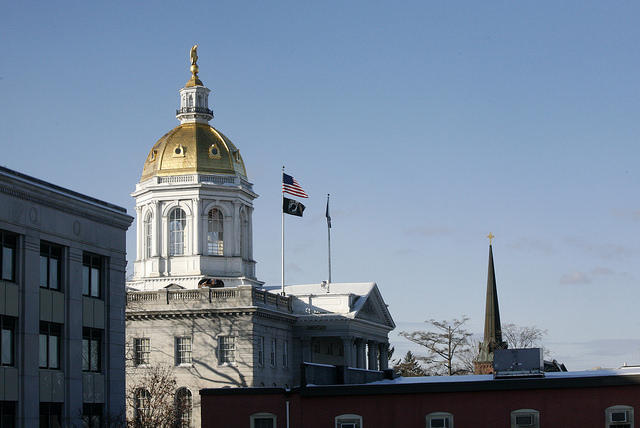By GARRY RAYNO, InDepthNH.org
CONCORD — The April revenue report could not come at a better time for the Senate Finance Committee as it works on its budget plan for the next two years.
April revenues are well above estimates for the year and compared to last year when the state’s economy was mostly shut down at the height of pandemic fears.
For April, revenues were $434.1 million led by businesses taxes which were $73.8 million over estimates at $229.3 million.
For the first 10 months of the 2021 fiscal year, state revenues total $2.5 billion, which is $242.9 million above budget writer estimates, and $212 million over after $30.8 million in accruals are deducted for the 2020 fiscal year. The total is $351.4 million more than collected a year ago.
Business taxes were not the only positive signal for the state’s revenue picture as the tobacco and real estate transfer taxes, revenues from the lottery and liquor commissions, and money from the tobacco settlement were all well above predictions for the month.
Business taxes for the year to date totaled $809.2 millions, $174.5 million more than estimates and $252.6 million more than a year ago.
According to the Department of Revenue Administration, “the increase in revenue for April was largely due to increases in revenue attributable to extension, estimate, return and notice payments and a decrease in refunds. However, the monthly activity is more comparable to April of 2019. . . A large component of the increase in revenue over prior year is due to the extension of the prior year filing deadlines.”
The tobacco tax also continued to perform better than anticipated producing $23.2 million for April, $7.7 million more than estimates. For the year, the levy has produced $206.2 million, or $40.4 million more than estimates and $34.3 million more than a year ago.
The tobacco settlement money for April is $47.8, which is $8.6 million more than anticipated, due to an adjustment made in 2020 and the state’s increase in tobacco sales over the last year according to the DRA.
The real estate transfer tax continues to reflect the booming real estate market with collections of $13.7 million for the month, $4.2 million more than estimates, and $168 million for the year, which is $37 million above estimates and $30.2 million more than a year ago.
The state’s second largest revenue producer, the rooms and meals tax, continues to be negatively impacted by the coronavirus pandemic.
The tax returned $26.5 million, $3.2 million below the budget plan, but is beginning to trend upward. According to DRA, hotel activity was up 73.9 percent for March but registered in April, while taxable meals were up 45 percent.
For the year-to-date, rooms and meals revenue totaled $262.1 million, which is $64.9 below estimates for this fiscal year and $35.5 million less than a year ago.
Lottery revenues were $3 million above plan, liquor up $1.8 million, while the communications and beer taxes, and court fines and fees were up slightly for the month.
The interest and dividends tax produced $38.8 million in April, which is $5.6 million below estimates, but has produced $111.1 million of the year to date, up $13.5 million over estimates and $33.8 million from a year ago when the filing deadline was moved to July 1.
Other levies performing below estimates include securities and insurance revenues and the statewide education property tax.
The Highway Fund rebounded a bit for the second month in a row, returning $22.5 million, $500,000 above estimates, but for the year to date remains below estimates by $7.2 million at $204.6 million.
The Fish and Game Fund has produced $11.1 million for the year to date, which is $2 million more than estimates and $200,000 more than a year ago.
Although Gov. Chris Sununu’s and the House’s proposed budget anticipated drawing money from the state’s rainy day fund to cover the deficit for 2020, that is not likely to happen if revenues continue to perform as they have so far this fiscal year.
The House approved its $13.67 billion two-year budget last month and Senate Finance is working on its proposal, which has to be completed by June 3.
A new budget needs to be in place when the current fiscal year ends June 30.
Garry Rayno may be reached at garry.rayno@yahoo.com.





